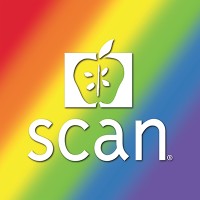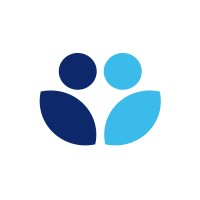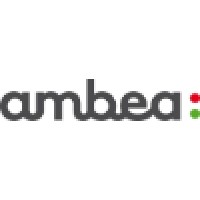
SCAN Company Cyber Security Posture
thescangroup.orgAbout SCAN Keeping Seniors Healthy and Independent–that’s been our mission for more than 40 years. Founded in Long Beach, CA in 1977 by a group of senior activists committed to improving access to the care and services they needed as they aged, SCAN is a recognized leader in senior care. As one of the nation’s largest not-for-profit Medicare Advantage plans, SCAN also provides a range of community services, including the innovative programs of Independence at Home and robust community education and community giving. The SCAN mission is not something that just hangs on the wall, it’s a commitment understood and embraced by every employee. We believe in supporting our employees so they, in turn, can support our members as well as seniors and caregivers in the communities we serve. That means providing training, tools and opportunities for growth—and rewarding jobs well done. Our employees enjoy: - A competitive compensation and benefits program - An annual employee bonus program - Generous paid-time-off (PTO) - Ten paid holidays per year - Excellent 403(b) Saving Plan, providing up to 4% match and vesting after three years - Casual attire . . . wear jeans every day!! - A work-life balance and much more! Want to learn more about SCAN? Visit us at scanhealthplan.com
SCAN Company Details
thescangroup
1686 employees
28761
62
Hospitals and Health Care
thescangroup.org
Scan still pending
SCA_2276037
In-progress
Between 800 and 900
This score is AI-generated and less favored by cyber insurers, who prefer the TPRM score.
 SCAN Global Score
SCAN Global Score.png)

SCAN Company Scoring based on AI Models
| Model Name | Date | Description | Current Score Difference | Score |
|---|---|---|---|---|
| AVERAGE-Industry | 03-12-2025 | This score represents the average cybersecurity rating of companies already scanned within the same industry. It provides a benchmark to compare an individual company's security posture against its industry peers. | N/A | Between 800 and 900 |
SCAN Company Cyber Security News & History
| Entity | Type | Severity | Impact | Seen | Url ID | Details | View |
|---|---|---|---|---|---|---|---|
| SCAN | Breach | 100 | 4 | 08/2016 | SCA11631522 | Link | |
Rankiteo Explanation : Attack with significant impact with customers data leaksDescription: SCAN Health Plan, suffered from a data breach incident after an unauthorized person got access to 87,000 individuals person information. The exposed information included name, address, phone number date of birth, limited health notes, such as a doctor name, health condition, or medication name, and Social Security number. They immediately began an investigation and brought in outside experts and took prevantive stpes. | |||||||
SCAN Company Subsidiaries

About SCAN Keeping Seniors Healthy and Independent–that’s been our mission for more than 40 years. Founded in Long Beach, CA in 1977 by a group of senior activists committed to improving access to the care and services they needed as they aged, SCAN is a recognized leader in senior care. As one of the nation’s largest not-for-profit Medicare Advantage plans, SCAN also provides a range of community services, including the innovative programs of Independence at Home and robust community education and community giving. The SCAN mission is not something that just hangs on the wall, it’s a commitment understood and embraced by every employee. We believe in supporting our employees so they, in turn, can support our members as well as seniors and caregivers in the communities we serve. That means providing training, tools and opportunities for growth—and rewarding jobs well done. Our employees enjoy: - A competitive compensation and benefits program - An annual employee bonus program - Generous paid-time-off (PTO) - Ten paid holidays per year - Excellent 403(b) Saving Plan, providing up to 4% match and vesting after three years - Casual attire . . . wear jeans every day!! - A work-life balance and much more! Want to learn more about SCAN? Visit us at scanhealthplan.com
Access Data Using Our API

Get company history
.png)
SCAN Cyber Security News
22 Free Cybersecurity Tools You Should Know About
Cybersecurity is a major budget item for most organizations, but there are many free cybersecurity tools available. Here's a concise list of ...
Nearly 24,000 IPs Target PAN-OS GlobalProtect in Coordinated Login Scan Campaign
Cybersecurity researchers are warning of a spike in suspicious login scanning activity targeting Palo Alto Networks PAN-OS GlobalProtect ...
Staying resilient in 2025: ESAs warn of rising cyber attacks and global instability
Cyber disruption is fueled by technological development. Financial gain is one of the main drivers for cyber-attacks, data breaches and ...
Mass login scans of PAN GlobalProtect portals surge
Nearly 24K unique IP addresses have attempted to access portals in the last 30 days, raising concerns of imminent attacks.
Navigating the Health Care Cybersecurity Storm: Strategies for Resilience and Risk Reduction
Learn what data give cybercriminals the strongest leverage for financial and political gain and why they increasingly are targeting the supply ...
Atlas Systems partners with Tenable to deliver advanced cybersecurity assessments
"Partnering with Tenable aligns perfectly with Atlas' mission to accelerate digital transformation and address pressing security challenges," ...
50 Must-Have Ethical Hacking Tools for Cybersecurity Experts
Ethical hacking tools are software and scripts that find security weaknesses in systems, networks, and applications.
Orbit: Open-source Nuclei security scanning and automation platform
Orbit was designed as a flexible, self-hosted, open-source platform that gives organizations control over their scanning processes while ...
Static Scan, Red Teams, and Frameworks Aim to Find Bad AI Models
With hundreds of artificial intelligence models found harboring malicious code, cybersecurity firms are releasing technology to help ...

SCAN Similar Companies

Stanford Health Care
Stanford Health Care, with multiple facilities throughout the Bay Area, is internationally renowned for leading edge and coordinated care in cancer care, neurosciences, cardiovascular medicine, surgery, organ transplant, medicine specialties, and primary care. Throughout its history, Stanford has be

Brookdale
Relationships are the heart of our culture. They help us create a sense of family among our residents, associates and patients. Integrity is our soul. It guides us to be open in our communication with each other, and it enables us to make the right decisions for the people who have entrusted us with

Inova Health
We are Inova, Northern Virginia and the Washington, DC, metropolitan area’s leading nonprofit healthcare provider. With expertise and compassion, we partner with our patients to help them stay healthy. We treat illness, heal injury and look at a patient’s whole health to help them flourish. Through

Nytida
Nytida ger stöd till barn, unga och vuxna för hela livets behov inom funktionsnedsättning och psykosocial problematik. Vi erbjuder boende, daglig verksamhet, stöd till individ och familj samt skola på cirka 400 enheter i Sverige. Vår vision: Vi gör världen lite bättre, en människa i taget

Ambea
Ambea är Skandinaviens kunskapsledande omsorgsföretag med cirka 31 000 medarbetare. Inom vår företagsgrupp erbjuder vi boende, stöd, utbildning och bemanning inom vård och omsorg. Ambea har drygt 950 enheter i Sverige, Norge och Danmark. Vi ska vara kvalitetsledande i allt vi gör och vår vis

Douglass Hanly Moir Pathology
Douglass Hanly Moir Pathology is an established and well-respected pathology practice offering comprehensive, high-quality pathology across NSW and northwest Victoria. We are the most prominent member of Sonic Healthcare, an Australian-owned, publicly listed company operating in pathology, radiolo

Frequently Asked Questions (FAQ) on Cybersecurity Incidents
SCAN CyberSecurity History Information
Total Incidents: According to Rankiteo, SCAN has faced 1 incidents in the past.
Incident Types: The types of cybersecurity incidents that have occurred include ['Breach'].
Total Financial Loss: The total financial loss from these incidents is estimated to be {total_financial_loss}.
Cybersecurity Posture: The company's overall cybersecurity posture is described as About SCAN Keeping Seniors Healthy and Independent–that’s been our mission for more than 40 years. Founded in Long Beach, CA in 1977 by a group of senior activists committed to improving access to the care and services they needed as they aged, SCAN is a recognized leader in senior care. As one of the nation’s largest not-for-profit Medicare Advantage plans, SCAN also provides a range of community services, including the innovative programs of Independence at Home and robust community education and community giving. The SCAN mission is not something that just hangs on the wall, it’s a commitment understood and embraced by every employee. We believe in supporting our employees so they, in turn, can support our members as well as seniors and caregivers in the communities we serve. That means providing training, tools and opportunities for growth—and rewarding jobs well done. Our employees enjoy: - A competitive compensation and benefits program - An annual employee bonus program - Generous paid-time-off (PTO) - Ten paid holidays per year - Excellent 403(b) Saving Plan, providing up to 4% match and vesting after three years - Casual attire . . . wear jeans every day!! - A work-life balance and much more! Want to learn more about SCAN? Visit us at scanhealthplan.com.
Detection and Response: The company detects and responds to cybersecurity incidents through {description_of_detection_and_response_process}.
Incident Details
Incident 1: Ransomware Attack
Title: {Incident_Title}
Description: {Brief_description_of_the_incident}
Date Detected: {Detection_Date}
Date Publicly Disclosed: {Disclosure_Date}
Date Resolved: {Resolution_Date}
Type: {Type_of_Attack}
Attack Vector: {Attack_Vector}
Vulnerability Exploited: {Vulnerability}
Threat Actor: {Threat_Actor}
Motivation: {Motivation}
Incident 2: Data Breach
Title: {Incident_Title}
Description: {Brief_description_of_the_incident}
Date Detected: {Detection_Date}
Date Publicly Disclosed: {Disclosure_Date}
Date Resolved: {Resolution_Date}
Type: {Type_of_Attack}
Attack Vector: {Attack_Vector}
Vulnerability Exploited: {Vulnerability}
Threat Actor: {Threat_Actor}
Motivation: {Motivation}
Common Attack Types: As of now, the company has not encountered any reported incidents involving common cyberattacks.
Identification of Attack Vectors: The company identifies the attack vectors used in incidents through {description_of_identification_process}.
Impact of the Incidents
Incident 1: Ransomware Attack
Financial Loss: {Financial_Loss}
Data Compromised: {Data_Compromised}
Systems Affected: {Systems_Affected}
Downtime: {Downtime}
Operational Impact: {Operational_Impact}
Conversion Rate Impact: {Conversion_Rate_Impact}
Revenue Loss: {Revenue_Loss}
Customer Complaints: {Customer_Complaints}
Brand Reputation Impact: {Brand_Reputation_Impact}
Legal Liabilities: {Legal_Liabilities}
Identity Theft Risk: {Identity_Theft_Risk}
Payment Information Risk: {Payment_Information_Risk}
Incident 2: Data Breach
Financial Loss: {Financial_Loss}
Data Compromised: {Data_Compromised}
Systems Affected: {Systems_Affected}
Downtime: {Downtime}
Operational Impact: {Operational_Impact}
Conversion Rate Impact: {Conversion_Rate_Impact}
Revenue Loss: {Revenue_Loss}
Customer Complaints: {Customer_Complaints}
Brand Reputation Impact: {Brand_Reputation_Impact}
Legal Liabilities: {Legal_Liabilities}
Identity Theft Risk: {Identity_Theft_Risk}
Payment Information Risk: {Payment_Information_Risk}
Average Financial Loss: The average financial loss per incident is {average_financial_loss}.
Commonly Compromised Data Types: The types of data most commonly compromised in incidents are {list_of_commonly_compromised_data_types}.
Incident 1: Ransomware Attack
Entity Name: {Entity_Name}
Entity Type: {Entity_Type}
Industry: {Industry}
Location: {Location}
Size: {Size}
Customers Affected: {Customers_Affected}
Incident 2: Data Breach
Entity Name: {Entity_Name}
Entity Type: {Entity_Type}
Industry: {Industry}
Location: {Location}
Size: {Size}
Customers Affected: {Customers_Affected}
Response to the Incidents
Incident 1: Ransomware Attack
Incident Response Plan Activated: {Yes/No}
Third Party Assistance: {Yes/No}
Law Enforcement Notified: {Yes/No}
Containment Measures: {Containment_Measures}
Remediation Measures: {Remediation_Measures}
Recovery Measures: {Recovery_Measures}
Communication Strategy: {Communication_Strategy}
Adaptive Behavioral WAF: {Adaptive_Behavioral_WAF}
On-Demand Scrubbing Services: {On_Demand_Scrubbing_Services}
Network Segmentation: {Network_Segmentation}
Enhanced Monitoring: {Enhanced_Monitoring}
Incident 2: Data Breach
Incident Response Plan Activated: {Yes/No}
Third Party Assistance: {Yes/No}
Law Enforcement Notified: {Yes/No}
Containment Measures: {Containment_Measures}
Remediation Measures: {Remediation_Measures}
Recovery Measures: {Recovery_Measures}
Communication Strategy: {Communication_Strategy}
Adaptive Behavioral WAF: {Adaptive_Behavioral_WAF}
On-Demand Scrubbing Services: {On_Demand_Scrubbing_Services}
Network Segmentation: {Network_Segmentation}
Enhanced Monitoring: {Enhanced_Monitoring}
Incident Response Plan: The company's incident response plan is described as {description_of_incident_response_plan}.
Third-Party Assistance: The company involves third-party assistance in incident response through {description_of_third_party_involvement}.
Data Breach Information
Incident 2: Data Breach
Type of Data Compromised: {Type_of_Data}
Number of Records Exposed: {Number_of_Records}
Sensitivity of Data: {Sensitivity_of_Data}
Data Exfiltration: {Yes/No}
Data Encryption: {Yes/No}
File Types Exposed: {File_Types}
Personally Identifiable Information: {Yes/No}
Prevention of Data Exfiltration: The company takes the following measures to prevent data exfiltration: {description_of_prevention_measures}.
Handling of PII Incidents: The company handles incidents involving personally identifiable information (PII) through {description_of_handling_process}.
Ransomware Information
Incident 1: Ransomware Attack
Ransom Demanded: {Ransom_Amount}
Ransom Paid: {Ransom_Paid}
Ransomware Strain: {Ransomware_Strain}
Data Encryption: {Yes/No}
Data Exfiltration: {Yes/No}
Ransom Payment Policy: The company's policy on paying ransoms in ransomware incidents is described as {description_of_ransom_payment_policy}.
Data Recovery from Ransomware: The company recovers data encrypted by ransomware through {description_of_data_recovery_process}.
Regulatory Compliance
Incident 1: Ransomware Attack
Regulations Violated: {Regulations_Violated}
Fines Imposed: {Fines_Imposed}
Legal Actions: {Legal_Actions}
Regulatory Notifications: {Regulatory_Notifications}
Incident 2: Data Breach
Regulations Violated: {Regulations_Violated}
Fines Imposed: {Fines_Imposed}
Legal Actions: {Legal_Actions}
Regulatory Notifications: {Regulatory_Notifications}
Regulatory Frameworks: The company complies with the following regulatory frameworks regarding cybersecurity: {list_of_regulatory_frameworks}.
Ensuring Regulatory Compliance: The company ensures compliance with regulatory requirements through {description_of_compliance_measures}.
Lessons Learned and Recommendations
Incident 1: Ransomware Attack
Lessons Learned: {Lessons_Learned}
Incident 2: Data Breach
Lessons Learned: {Lessons_Learned}
Incident 1: Ransomware Attack
Recommendations: {Recommendations}
Incident 2: Data Breach
Recommendations: {Recommendations}
Key Lessons Learned: The key lessons learned from past incidents are {list_of_key_lessons_learned}.
Implemented Recommendations: The company has implemented the following recommendations to improve cybersecurity: {list_of_implemented_recommendations}.
References
Additional Resources: Stakeholders can find additional resources on cybersecurity best practices at {list_of_additional_resources}.
Investigation Status
Incident 1: Ransomware Attack
Investigation Status: {Investigation_Status}
Incident 2: Data Breach
Investigation Status: {Investigation_Status}
Communication of Investigation Status: The company communicates the status of incident investigations to stakeholders through {description_of_communication_process}.
Stakeholder and Customer Advisories
Incident 1: Ransomware Attack
Stakeholder Advisories: {Stakeholder_Advisories}
Customer Advisories: {Customer_Advisories}
Incident 2: Data Breach
Stakeholder Advisories: {Stakeholder_Advisories}
Customer Advisories: {Customer_Advisories}
Advisories Provided: The company provides the following advisories to stakeholders and customers following an incident: {description_of_advisories_provided}.
Initial Access Broker
Incident 1: Ransomware Attack
Entry Point: {Entry_Point}
Reconnaissance Period: {Reconnaissance_Period}
Backdoors Established: {Backdoors_Established}
High Value Targets: {High_Value_Targets}
Data Sold on Dark Web: {Yes/No}
Incident 2: Data Breach
Entry Point: {Entry_Point}
Reconnaissance Period: {Reconnaissance_Period}
Backdoors Established: {Backdoors_Established}
High Value Targets: {High_Value_Targets}
Data Sold on Dark Web: {Yes/No}
Monitoring and Mitigation of Initial Access Brokers: The company monitors and mitigates the activities of initial access brokers through {description_of_monitoring_and_mitigation_measures}.
Post-Incident Analysis
Incident 1: Ransomware Attack
Root Causes: {Root_Causes}
Corrective Actions: {Corrective_Actions}
Incident 2: Data Breach
Root Causes: {Root_Causes}
Corrective Actions: {Corrective_Actions}
Post-Incident Analysis Process: The company's process for conducting post-incident analysis is described as {description_of_post_incident_analysis_process}.
Corrective Actions Taken: The company has taken the following corrective actions based on post-incident analysis: {list_of_corrective_actions_taken}.
Additional Questions
General Information
Ransom Payment History: The company has {paid/not_paid} ransoms in the past.
Last Ransom Demanded: The amount of the last ransom demanded was {last_ransom_amount}.
Last Attacking Group: The attacking group in the last incident was {last_attacking_group}.
Incident Details
Most Recent Incident Detected: The most recent incident detected was on {most_recent_incident_detected_date}.
Most Recent Incident Publicly Disclosed: The most recent incident publicly disclosed was on {most_recent_incident_publicly_disclosed_date}.
Most Recent Incident Resolved: The most recent incident resolved was on {most_recent_incident_resolved_date}.
Impact of the Incidents
Highest Financial Loss: The highest financial loss from an incident was {highest_financial_loss}.
Most Significant Data Compromised: The most significant data compromised in an incident was {most_significant_data_compromised}.
Most Significant System Affected: The most significant system affected in an incident was {most_significant_system_affected}.
Response to the Incidents
Third-Party Assistance in Most Recent Incident: The third-party assistance involved in the most recent incident was {third_party_assistance_in_most_recent_incident}.
Containment Measures in Most Recent Incident: The containment measures taken in the most recent incident were {containment_measures_in_most_recent_incident}.
Data Breach Information
Most Sensitive Data Compromised: The most sensitive data compromised in a breach was {most_sensitive_data_compromised}.
Number of Records Exposed: The number of records exposed in the most significant breach was {number_of_records_exposed}.
Ransomware Information
Highest Ransom Demanded: The highest ransom demanded in a ransomware incident was {highest_ransom_demanded}.
Highest Ransom Paid: The highest ransom paid in a ransomware incident was {highest_ransom_paid}.
Regulatory Compliance
Highest Fine Imposed: The highest fine imposed for a regulatory violation was {highest_fine_imposed}.
Most Significant Legal Action: The most significant legal action taken for a regulatory violation was {most_significant_legal_action}.
Lessons Learned and Recommendations
Most Significant Lesson Learned: The most significant lesson learned from past incidents was {most_significant_lesson_learned}.
Most Significant Recommendation Implemented: The most significant recommendation implemented to improve cybersecurity was {most_significant_recommendation_implemented}.
References
Most Recent Source: The most recent source of information about an incident is {most_recent_source}.
Most Recent URL for Additional Resources: The most recent URL for additional resources on cybersecurity best practices is {most_recent_url}.
Investigation Status
Current Status of Most Recent Investigation: The current status of the most recent investigation is {current_status_of_most_recent_investigation}.
Stakeholder and Customer Advisories
Most Recent Stakeholder Advisory: The most recent stakeholder advisory issued was {most_recent_stakeholder_advisory}.
Most Recent Customer Advisory: The most recent customer advisory issued was {most_recent_customer_advisory}.
Initial Access Broker
Most Recent Entry Point: The most recent entry point used by an initial access broker was {most_recent_entry_point}.
Most Recent Reconnaissance Period: The most recent reconnaissance period for an incident was {most_recent_reconnaissance_period}.
Post-Incident Analysis
Most Significant Root Cause: The most significant root cause identified in post-incident analysis was {most_significant_root_cause}.
Most Significant Corrective Action: The most significant corrective action taken based on post-incident analysis was {most_significant_corrective_action}.
What Do We Measure?
















Every week, Rankiteo analyzes billions of signals to give organizations a sharper, faster view of emerging risks. With deeper, more actionable intelligence at their fingertips, security teams can outpace threat actors, respond instantly to Zero-Day attacks, and dramatically shrink their risk exposure window.
These are some of the factors we use to calculate the overall score:
Identify exposed access points, detect misconfigured SSL certificates, and uncover vulnerabilities across the network infrastructure.
Gain visibility into the software components used within an organization to detect vulnerabilities, manage risk, and ensure supply chain security.
Monitor and manage all IT assets and their configurations to ensure accurate, real-time visibility across the company's technology environment.
Leverage real-time insights on active threats, malware campaigns, and emerging vulnerabilities to proactively defend against evolving cyberattacks.




